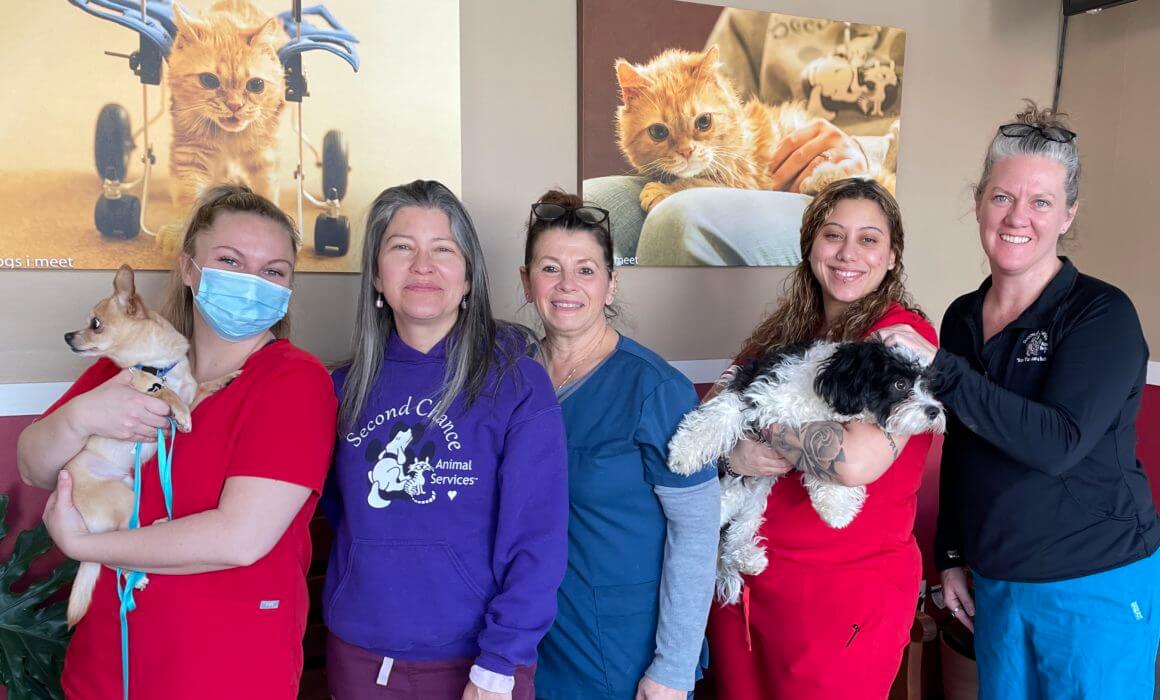Celebrating Milestones: 65,000th Spay/Neuter Surgery
Second Chance hit a milestone recently, performing our 65,000th spay/neuter surgery.
The procedure was performed at our Worcester Community Veterinary Hospital. The recipient was an 11-month-old bubbly cavapoo named Jax who was brought in by a local animal control officer through the nonprofit’s Helping Hand Program. This program lends a helping hand to other animal welfare organizations, providing veterinary care at a significantly reduced cost.
Jax was accompanied by his new friend, a dog named Tyson who was recently found abandoned in a Salvation Army shed. Tyson was seen for his own care and plans to return to Second Chance soon for his neuter.
Second Chance began our low-cost spay/neuter program in 2005 at the East Brookfield shelter to help stem pet homelessness in the surrounding community. Today, hundreds of pets come to the nonprofit’s hospitals each month for spay/neuter surgery in state-of-the-art surgical suites made possible by grants and generous donors. Second Chance’s new educational hospital in Southbridge plans to begin low-cost spay/neuter later this year.
COO of Hospitals Amanda Normandin says she is extremely proud of this milestone and the work the spay/neuter teams have accomplished. “We know just how important spay/neuter services are. Not only does the program help prevent pet homelessness, but it also improves the lives of pets receiving the surgery. Many of the emergency surgeries we perform are on female pets suffering from pyometra, a potentially deadly infection of the uterus. Routine spays and neuters can help protect pets from many life-threatening conditions including pyometra and testicular cancer.”
Second Chance surgeons are specially trained to perform the highest-quality high-volume surgeries. Pets check in early morning and are discharged later the same day so they can recuperate in the comfort of their own homes with their owners.
Second Chance founder and CEO Sheryl Blancato is proud of the longstanding low-cost spay/neuter program and said, “Thanks to these surgeries, less pets are ending up in Massachusetts shelters, which means more pets in shelters are getting a second chance.”

